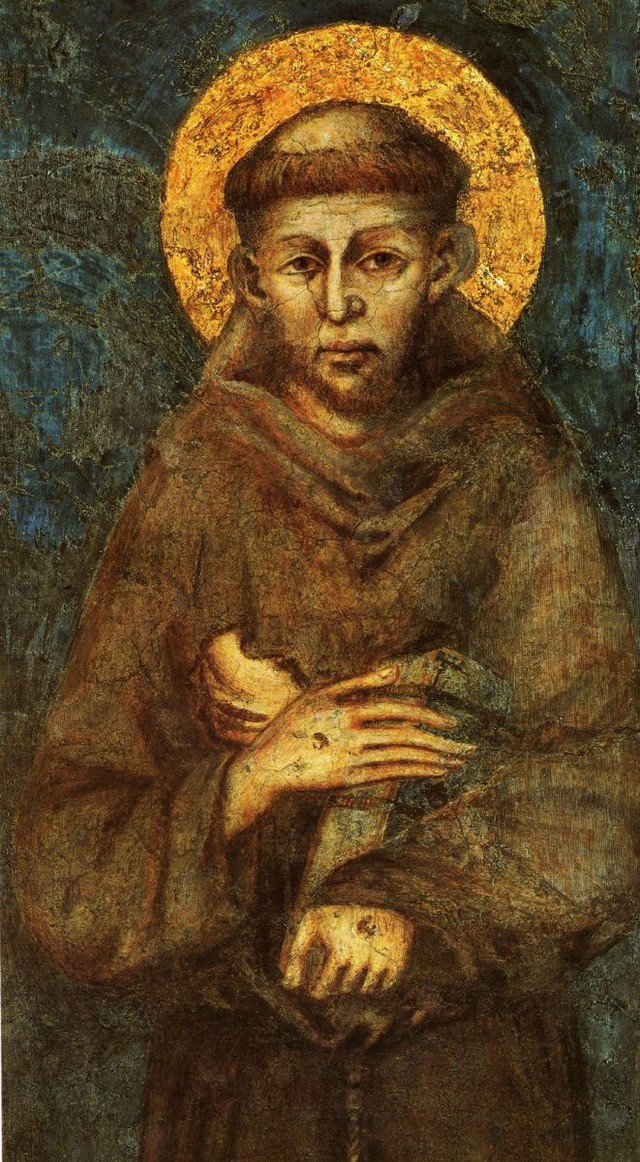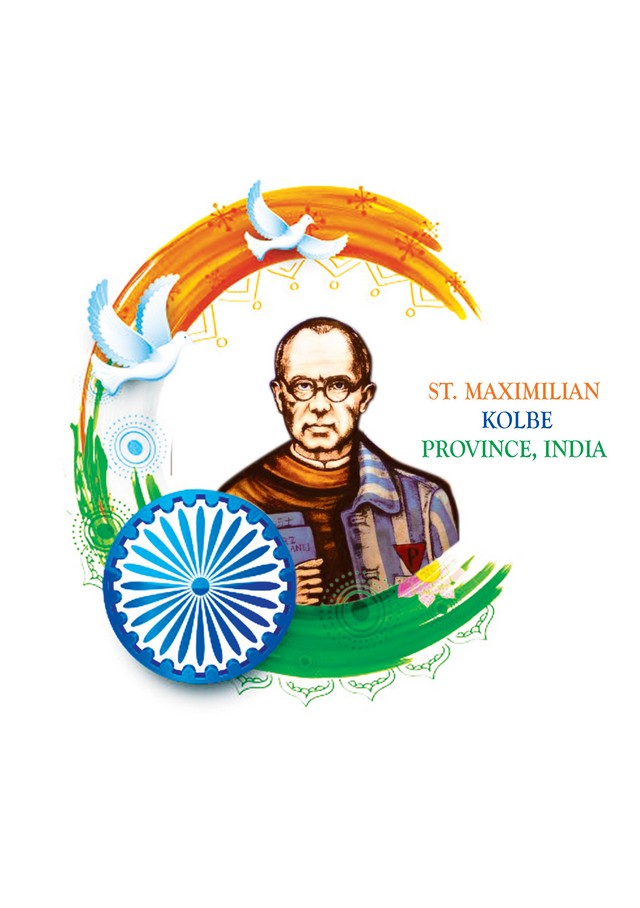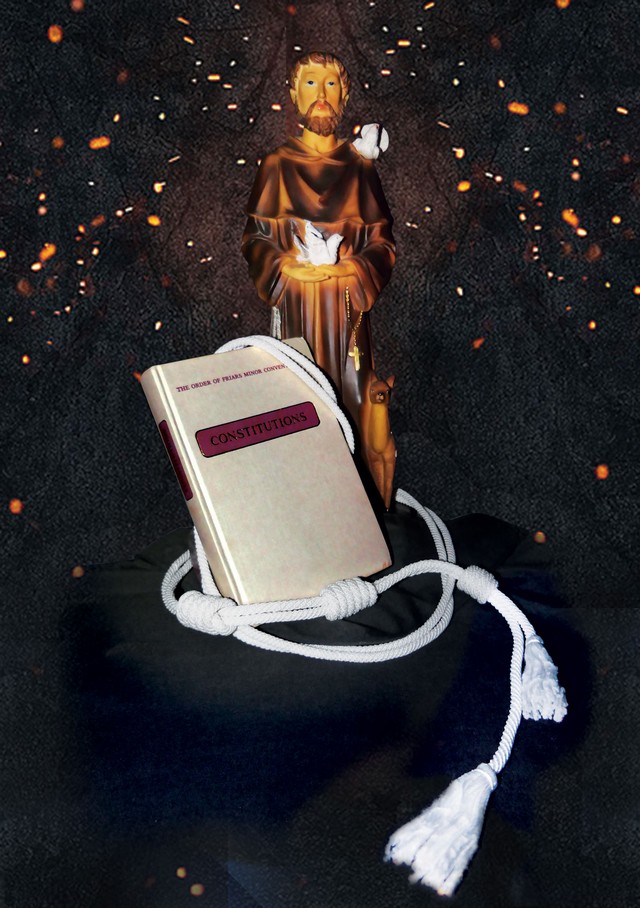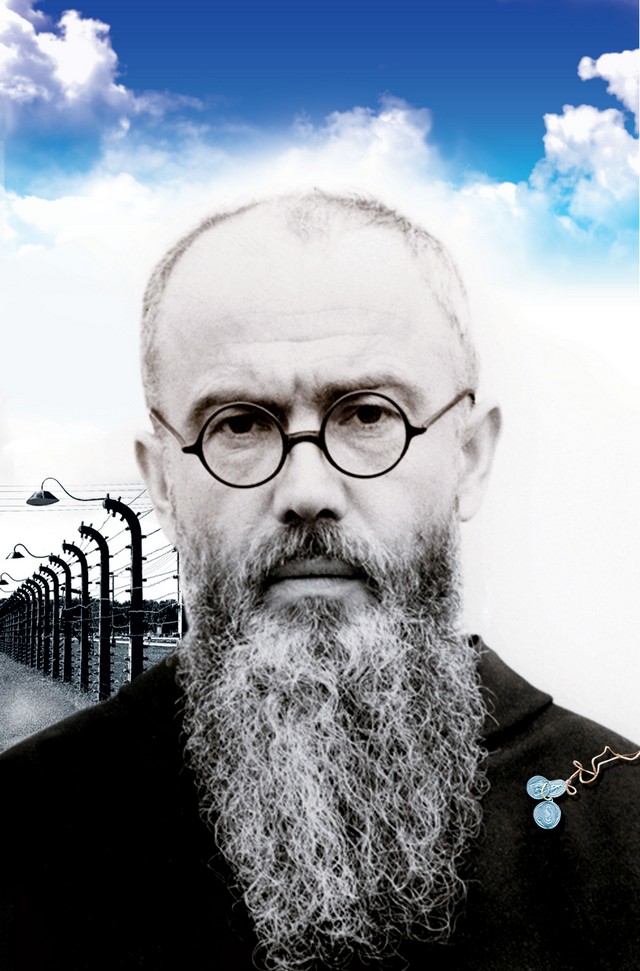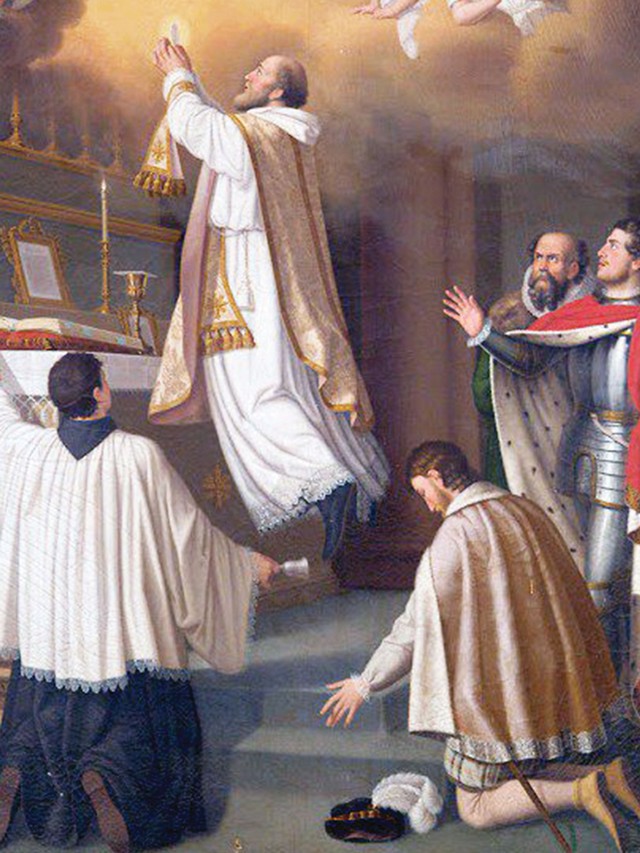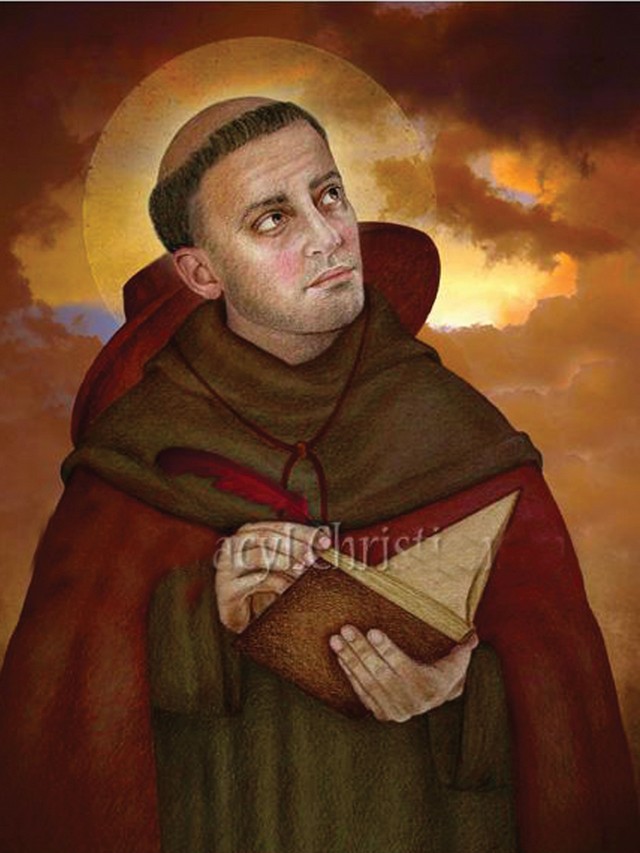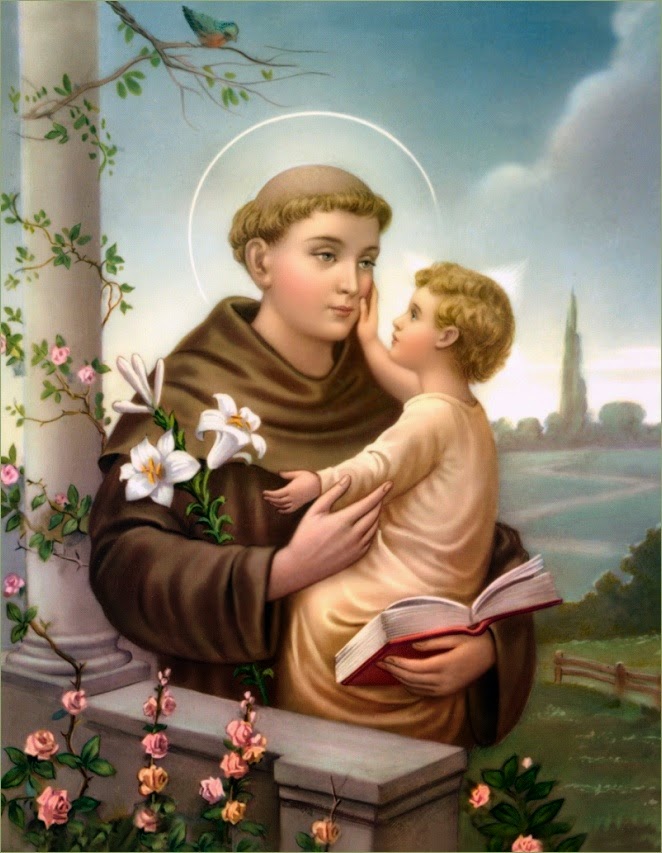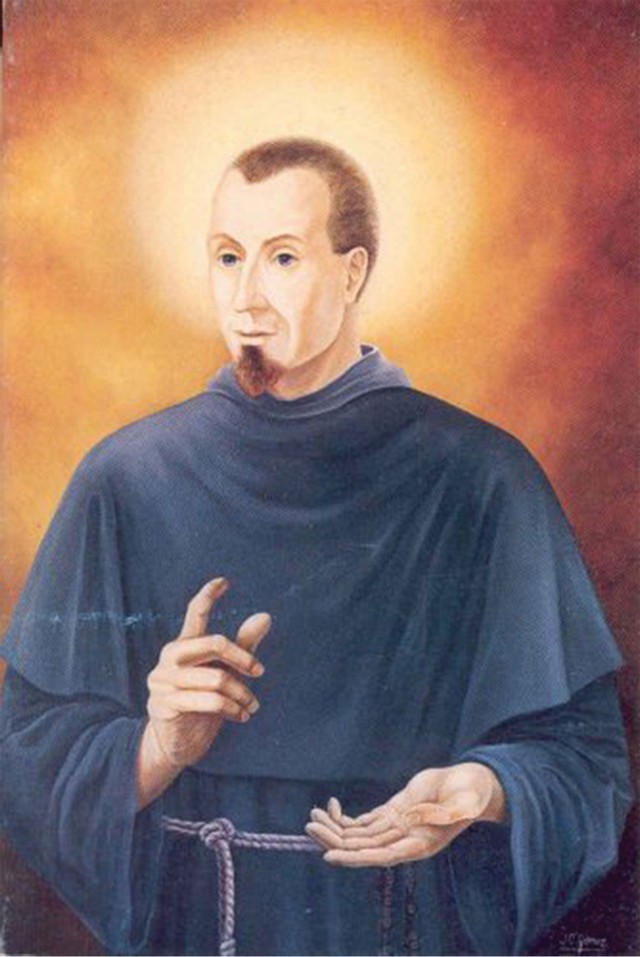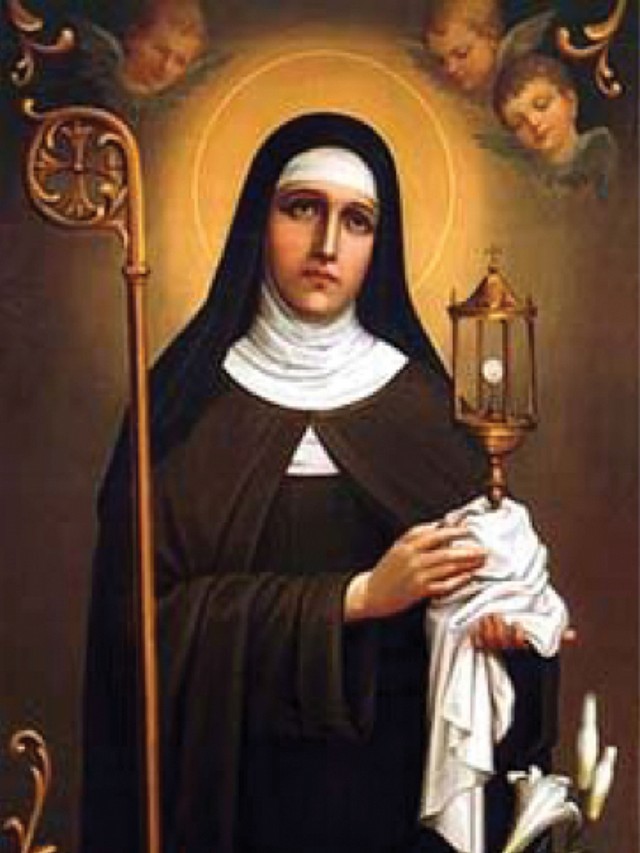
WHO WE ARE
St. Francis of Assisi
Francis was born into a wealthy merchant family in 1182. Francis enjoyed a very rich easy life growing up because of his father's wealth and the permissiveness of the times. From the beginning, everyone loved Francis. He was constantly happy, charming, and a born leader. As he grew up, Francis became the leader of a crowd of young people who spent their nights in wild parties. Francis wanted to be a noble, a knight. Battle was the best place to win the glory and prestige he longed for. He got his first chance when Assisi declared war on their longtime enemy, the nearby town of Perugia. Francis went to battle, was captured, and remained a prisoner-of-war for a year. After his release, Francis no longer sought the meaningless pleasures of his youth. He wandered aimlessly, asking what God wanted him to do. It is the beginning of his "new" life, a life totally committed to the Lord.
Francis' conversion did not happen overnight. God had waited for him for twenty-five years and now it was Francis' turn to wait. Francis started to spend more time in prayer. He went off to a cave and wept for his sins. Sometimes God's grace overwhelmed him with joy. However, life could not just stop for God. There was a business to run, customers to wait on.
One day while riding through the countryside, Francis came face to face with a leper. Repelled by the appearance and the smell of the leper, Francis nevertheless jumped down from his horse and kissed the hand of the leper. When his kiss of peace was returned, Francis was filled with joy. As he rode off, he turned around for a last wave, and saw that the leper had disappeared. He always looked upon it as a test from God.
His search for conversion led him to the ancient church at San Damiano. While he was praying there, he heard Christ on the crucifix speaks to him, "Francis, repair my church." Francis assumed this meant the San Damiano church, the crumbling building he was in. Acting again in his impetuous way, he took fabric from his father's shop and sold it to get money to repair the church. His father saw this as an act of theft. He put together with Francis' cowardice, waste of money, and his growing disinterest in money made Francis seem more like a mad man than his son. Pietro dragged Francis before the bishop, and in front of the whole town demanded that Francis return the money and renounce all rights as his heir.
The bishop was very kind to Francis; he told him to return the money and said God would provide. That was all Francis needed to hear. He not only gave back the money but stripped off all his clothes, the clothes his father had given him. In front of the crowd that had gathered he said, "Pietro Bernardone is no longer my father. From now on I can say with complete freedom, 'Our Father who art in heaven.'" Wearing nothing but cast off rags, he went off into the freezing woods singing.
Francis went back to what he considered God's call. He begged for stones and rebuilt the San Damiano church with his own hands, not realizing that it was the Church that God wanted repaired. Scandal and avarice were working on the Church from inside, while outside heresies flourished by appealing to those longing for something different or adventurous.
Soon Francis started to preach. Francis was not a reformer; he preached about returning to God and obedience to the Church. Francis must have known about the decay in the Church, but he always showed the Church and its people his utmost respect. Slowly companions came to Francis, people who wanted to follow his life of sleeping in the open, begging for garbage to eat and loving God. With companions, Francis knew he now had to have some kind of direction to this life so he opened the Bible in three places. He read the command to the rich young man to sell all his good and give to the poor, the order to the apostles to take nothing on their journey, and the demand to take up the cross daily. "Here is our rule," Francis said -- as simple, and as seemingly impossible, as that. He was going to do what no one thought possible any more -- live by the Gospel.
He thought of what he was doing as expressing God's brotherhood. His companions came from all walks of life, from fields and towns, nobility and common people, universities, the Church, and the merchant class. Francis practised true equality by showing honour, respect, and love to every person. Francis' brotherhood included all of God's creation. Much has been written about Francis' love of nature but his relationship was deeper than that. We call someone a lover of nature if they spend their free time in the woods or admire its beauty. But Francis really felt that nature, all God's creations, were part of his brotherhood.
Following the Gospel literally, Francis and his companions went out to preach two by two. At first, listeners were understandably hostile to these men in rags trying to talk about God's love. People even ran from them for fear they would catch this strange madness! And they were right. Because soon these same people noticed that these barefoot beggars wearing sacks seemed filled with constant joy. They celebrated life. Soon those who had met them with mud and rocks greeted them with bells and smiles. Francis did not try to abolish poverty; he tried to make it holy. When his friars met someone poorer than they, they would eagerly rip off the sleeve of their habit to give to the person. They worked for all necessities and only begged if they had to. But Francis would not let them accept any money. He told them to treat coins as if they were pebbles in the road.
Francis was a man of action. His simplicity of life extended to ideas and deeds. If, there was a simple way, no matter how impossible it seemed, Francis would take it. So when Francis wanted approval for his brotherhood, he went straight to Rome to see Pope Innocent III. You can imagine what the pope thought when this beggar approached him! As a matter of fact he threw Francis out. However, when he had a dream that this tiny man in rags held up the tilting Lateran basilica, he quickly called Francis back and gave him permission to preach. Francis acted quickly because he acted from the heart; he did not have time to put on a role. Francis did find persecution and martyrdom of a kind. His brotherhood had grown to 5000 in ten years. Pressure came from outside to control this great movement, to make them conform to the standards of others. He finally gave up authority in his Order.
Francis final years were filled with suffering as well as humiliation. Praying to share in Christ's passion he had a vision received the stigmata, the marks of the nails and the lance wound that Christ suffered, in his own body. Years of poverty and wandering had made Francis ill. When he began to go blind, he wrote his beautiful Canticle of the Sun that expresses his brotherhood with creation in praising God. Francis never fully recovered from his illness. He died on October 4, 1226 at the age of 45. Francis is considered the founder of all Franciscan Order and the patron saint of ecology. Francis of Assisi was canonized a saint in 1228, two years after his death.
